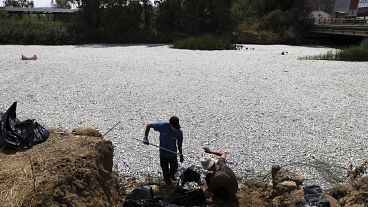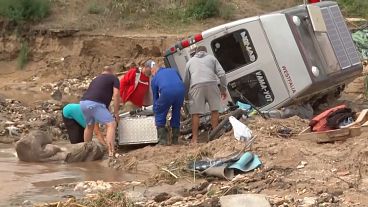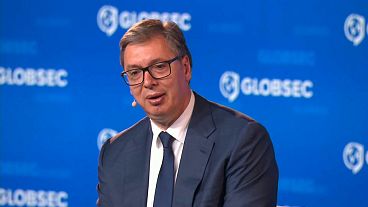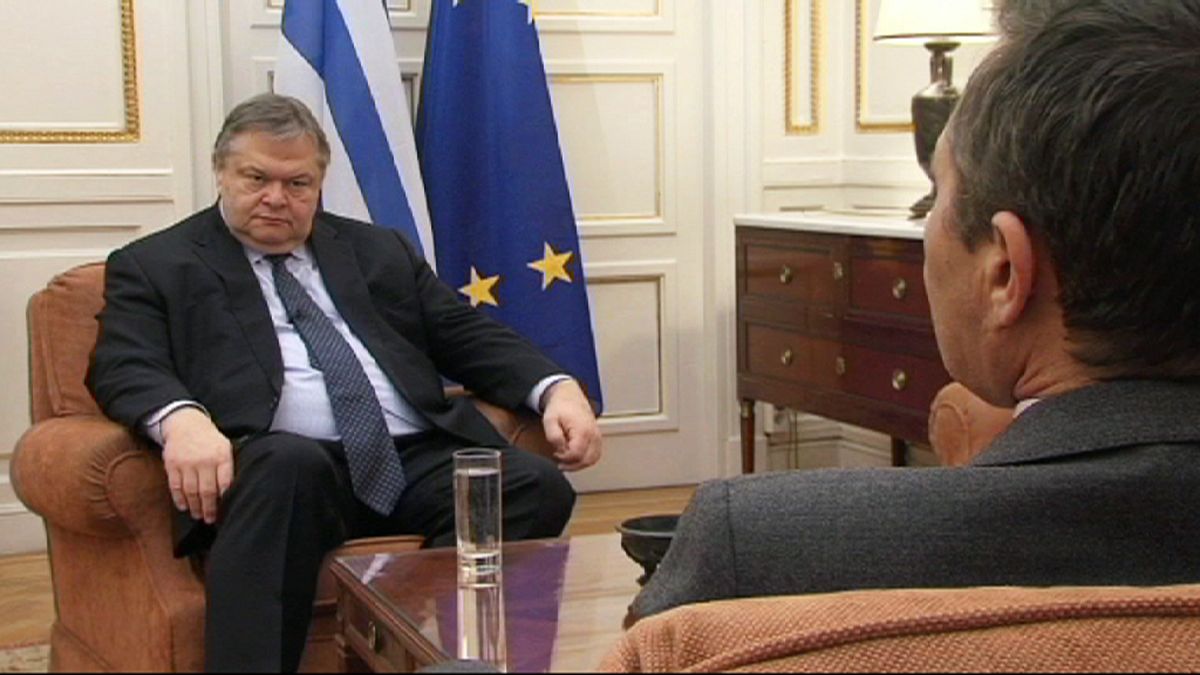Starting with the new year, Greece takes its turn as presiding nation of the Council of the European Union – the institutional structure which jointly decides the bloc’s policy directions and legislation with the European Parliament.
Although Greece is economically and socially on its knees, it will chair the bloc’s ministerial meetings for the next few months. The government has promised a ‘low budget presidency’, aiming to contain spending for all the necessary events at less than 50 million euros.
One Athens resident we asked for comment felt that reforms at home should be taken care of before EU-presidency business.
Another said: “People are fed up with MPs getting 10,000 euros per month when they get 500.”
Greek stewardship of the now 28-member European Union comes at a time when crucial political decisions have to be taken at European and at domestic level. On the home front, emergency loan arrangements with the EU and the International Monetary Fund are set to expire in April, and then Greece will need another bailout package. That is likely to mean even more austerity measures. After struggling with recession for six years, the mood is far from cheerful.
Economic analyst Panayotis Petrakis told euronews: “Current discussion is pointing to a third bailout package for Greece unlike the others. It will definitely contain new obligations for the country, but will eventually create the prospects for economic improvement in 2015 and 2016.”
In the short term, however, with the Greeks ground down by repeated drops in pay, and unemployment at a record high, further austerity may threaten the solidity of the coalition government and lead to a snap general election during the EU Presidency.
In the European sphere, Greece will oversee the first steps of banking union implementation, continue the EU quest for growth solutions and fighting unemployment, while pursuing new policies in many other areas.
We spoke to Deputy Prime Minister Evangelos Venizelos about how he sees the challenges ahead.
Stamatis Giannisis, euronews: “Deputy Prime Minister, from today, Greece is at the helm of the Council of the European Union. But this is effectively a four-month presidency, as the European parliamentary election is due in May. Can you deliver on such a demanding agenda in such a short period of time?”
Evangelos Venizelos, Deputy Prime Minister and Foreign Minister of Greece: “It is a fair opportunity for Greece to present itself as an equal and sovereign member state of the European Union, capable of conducting the business of the Council of the European Union in the name of all the 28 member states.
“We seek a new narrative for Europe, more attractive to the citizens of Europe, more optimistic and more reassuring for the families in Europe, but also for the new generation which in many countries associates the European Union with austerity, unemployment and lower incomes.
“We therefore have to bring back into the discussion a Europe of culture, of civilisation, of history, of the rule of law, of the welfare state – discussion of a Europe of growth, of innovation, a Europe of people who are conscious of its history and pursue prosperity for everyone.”
euronews: “There’s been an agreement recently on a banking union for the region. Greece, meanwhile, is about to seek a third rescue package to continue paying back its loans. How do you feel about this?
Venizelos: “It’s very important that a decision be taken over banking union, but neither the single watchdog mechanism nor the single clearing mechanism are enough. A single deposit guarantee mechanism is also necessary so that the burden doesn’t fall on countries in the south of Europe who have to pay higher interest rates just because the countries in the north appear to provide higher security to bank deposits. And, yes, Greece is fighting its way out of the crisis.
“Over the past three and a half years, Greece has made the biggest fiscal adjustment in the history of the western economy. We began back in 2009 with a 12 percent primary deficit, and now we have achieved a primary surplus, which in terms of structural surplus – that is not taking into account the circumstantial results of the recession – is as high as 6.5 percent. We are by far the best-performing country in Europe in terms of primary fiscal results, and one of the best in the world.
“Therefore, we have a basis upon which we can talk on amicable and good partnership terms with other member states and with the IMF and with the ECB and come up with the terms that will allow us to exit the crisis for good.
“No one will lose from that, it will benefit all, and the European taxpayer won’t pay a single euro for Greece.”
euronews: “Growth and unemployment are high on the agenda of the Greek presidency. What are you going to do about them?”
Venizelos: “We are going to work closely with the European Commission, which is the key instrument for Europe, and with the European Investment Bank, in order to create the spin that is much needed by all EU members. It isn’t just the countries which are experiencing the crisis and are implementing economic restructure programmes, nor the countries that are close to that. It is the entire European Union that needs a new model of production, growth and competitiveness in order to escape the danger of recession, or, in some cases, to rise from this mediocre situation of near-zero growth.”












